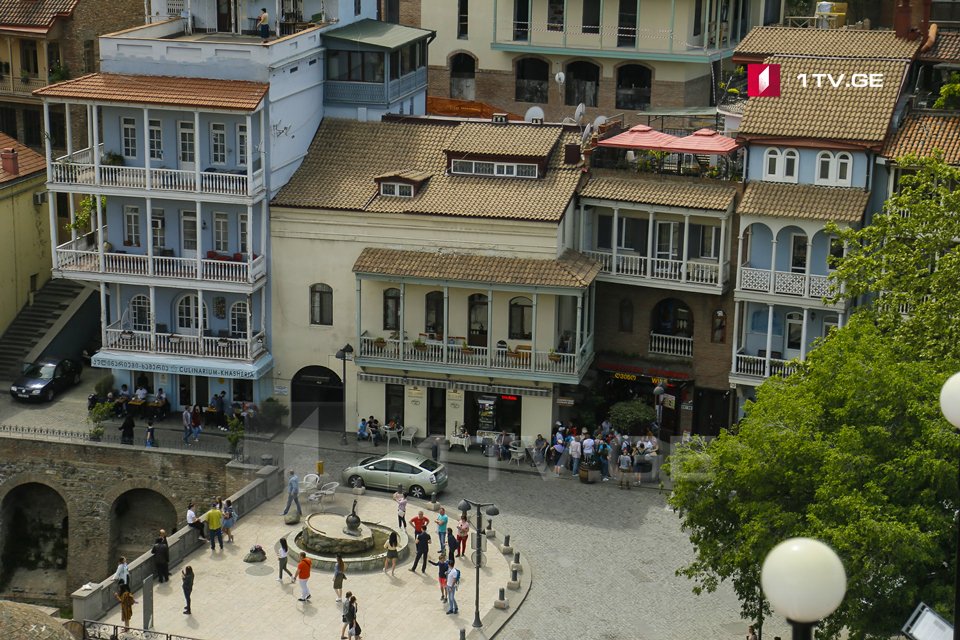BBC: Russia says Georgia isn't safe. Russians in Georgia say otherwise
The warnings for Russian tourists from the country’s state media are stark: travelling to Georgia is no longer safe, some tourists have even been attacked – BBC published an article about Russia’s ban of flights in direction of Georgia and a recommendation to Russian tourists.
“The state is warning you that nobody would guarantee your safety in Georgia,” TV presenter Olga Skabeeva told her audience.
The flare-up in relations began when Georgian protesters tried to storm parliament in the capital, Tbilisi, last week. They were furious a Russian MP had given a speech from the speaker’s chair. The MP, Sergei Gavrilov, left Georgia in a hurry, before clashes broke out in which 240 people were hurt.
President Vladimir Putin’s response was swift: a temporary ban on flights to Georgia from 8 July, restrictions on Georgian wine imports, and a recommendation to Russian tourists to come home.
“You can’t trade your honour and dignity for a bottle of free wine on arrival in Tbilisi,” Skabeeva told a studio guest who questioned the flight ban. Russia’s Rossiya 1 TV channel went so far as to report a threat of “Russians being killed in Georgia”, during its evening current affairs show.
Russians already in Georgia appeared to have a very different view. “We don’t really listen to Putin’s advice, we have our own minds,” said Katya, on Tbilisi’s stylish Shardeni Street. The majority of visitors taking a stroll on Shardeni Street were from Russia, and none of the people who spoke to the BBC expressed any concern for their safety.
“We checked with friends before coming and they said it was all safe,” said Maria from Kazan. “There is no negative attitude towards the Russians, quite the opposite. People are really friendly and keep giving my kid things for free.”
Two sisters from the southern city of Orenburg, Ekaterina and Luba, said they had come despite the trouble because they refused to believe Russian media.
“There isn’t any Russophobia here. By banning direct flights they’ve just created more problems for people. Our friends are saying they will still come: via Minsk (in Belarus) or via Ankara (in Turkey)”.
Anna Denisova moved with her family from Russia to Georgia two and a half years ago to open a hotel on the Black Sea coast, for generations a popular tourist destination for Russians. “We have been travelling here for over 10 years, and I have never experienced even the tiniest prejudice against us as Russians,” she said.
According to Georgia’s National Tourism Administration, Russia topped the list of visitors in 2018 with 1.4 million out of 8.6 million tourists. And that number was expected to grow this year.
Shalva Alaverdashvili, the founder of Georgia’s Hotel and Restaurants federation, said he feared the impact of Vladimir Putin’s ban will be felt immediately.
“In western Georgia, in our seaside resorts more than 50% of customers are Russians and a lot of bookings are being cancelled. In Tbilisi, it is going to affect the flat rental business. We have more than 22,000 flats for rent and the main customers are Russians.”
He said he saw no sense of panic, rather a sense of unity, and the need to act in order to find solutions.
“I am sure Europe is going to help us,” he said. “People from the Baltic States are saying they will come even if they weren’t considering spending their summer here; it gives us more hope.”
On social media, a Facebook group called #spendyoursummerinGeorgia has become popular. Some 160,000 people joined the group in a few days, with messages of support from all over the world.
https://www.bbc.com/news/world-europe-48760441
